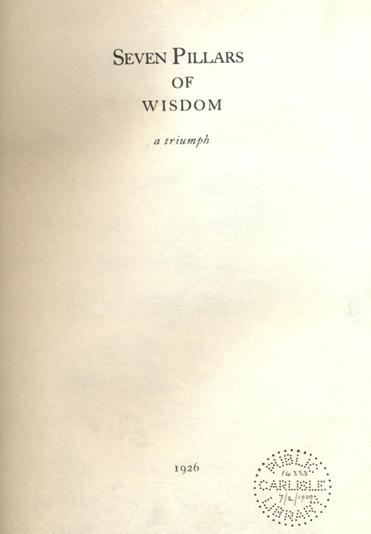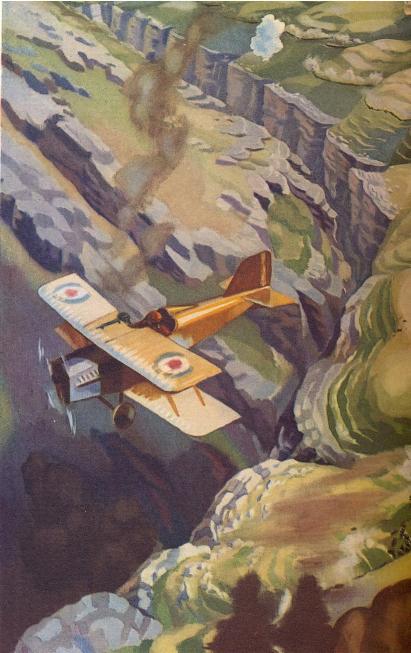Cumberland Council has now replaced the previous Cumbria County Council and 3 District Councils. The content on this website is still relevant including documents that may include the old county council logo. Find out about the council changes
Please update any cumbria.gov.uk browser shortcuts you may have to the new site pages as needed
Reading List


The Great War - A short reading list
Three novels
Sebastian Faulks, Birdsong, 1993.
Set largely in France in the trenches, and contains a vivid account of the night before the Battle of the Somme.
Pat Barker, Regeneration Trilogy, 1991-95: Regeneration 1991, The Eye in the Door, 1993,The Ghost Road, 1995.
This trilogy has a tragic grandeur and lack of sentimentality quite unlike other fictional accounts of the period
Under Fire, Henri Barbusse, 1916.
Written whilst the author was a French soldier it holds a unique position in being published before the end of the war. It contains realistic descriptions of trench life.
Three biographies
Good Bye to All That, Robert Graves, 1929
Old Soldiers Never Die, Frank Richards, 1933
Memoirs of an Infantry Officer, Siegfried Sassoon,1930
Three biographies which have stood the test of time and are now regarded as classic accounts of soldiering in the trenches. They are interlinked in that all three men served with the Royal Welch Fusiliers; Sassoon and Graves as junior officers who volunteered in 1914.
Richards was a regular 'Tommy Atkins' who had served in India and Burma. Being a reservist Richards was called up in August 1914 and survived to see the Armistice. He never rose above the rank of private. Graves and Sassoon were privately educated and are primarily known for their poetry. Frank Richards was from a working class background but had a flare for writing in an earthy style.
Three histories
Guns of August, Barbara Tuchman. 1962
An acclaimed Pulitzer-prize winning account of how the first thirty days of battle determined the course of the Great War.
Testament of Youth, Vera Brittain, 1933
Autobiographical story of a girl from a privileged background studying at Oxford who finds her world turned upside down with the advent of war. She tells of her war experiences as a VAD nurse. Her fiancé, Roland Leighton, her brother, Edward, and many of her friends are killed in the war, a shattering experience which is movingly told.
Seven Pillars of Wisdom, TE Lawrence, 1926
An account of the Arab revolt against the Turks during the First World War. Winston Churchill wrote 'It ranks with the greatest books ever written in the English language. As a narrative of adventure…it is unsurpassable.'
View from Germany and Austria-Hungary
All Quiet on the Western Front, Eric Maria Remarque, 1929
The author was a German soldier who was twice wounded in the Great War. In 1929 he published Im Westen nichts Neues. Translated that year under the title All Quiet on the Western Front it became a world wide success as a novel and film. It portrays life in the trenches with brutal realism, but there is a pacifism underlying the story. Unsurprisingly the novel was one of those burnt publicly by the National Socialists in 1933.
The Good Soldier Svejk, Jaroslav Hasek, published in English in 1930.
An irreverent novel based around an ordinary Austria-Hungary soldier, who in civilian life deals in stolen dogs. The book is essentially a series of absurdly comic episodes exploring both the pointlessness and futility of conflict in general and of military discipline, Austrian military discipline, in particular. Many of its characters, especially the Czechs, are participating in a conflict they do not understand on behalf of a country to which they have no loyalty.
Germany's Aims in the First World War, Fritz Fischer, published in English in 1968
Fritz Fischer held and developed a ground breaking and influential view of the war which saw the Germans as being chiefly culpable for the outbreak of the conflict. His views caused so much anger that his publisher's office in Hamburg was firebombed. He is widely seen as the most influential German historian of the twentieth century.

